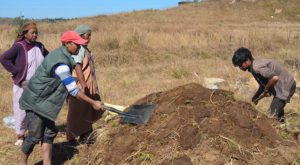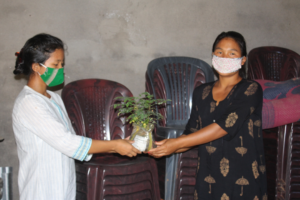Pollination is one natural process, second only to photosynthesis that decides the future of the ecosystem. Three out of four crops across the globe depend, in some way, on pollination for successful human use; they not only contribute to healthy diets but also to maintaining and nurturing biodiversity on earth. We at NESFAS have our own journey when it comes to making our local beekeeping resources more widespread.
During the difficult global pandemic, NESFAS did not allow Beekeeping to take a back seat and was able to promote and advocate the growth of kitchen gardens in 2226 households. This will eventually support and maintain pollinators such as bees and provide a steady source of food for them in the form of nectar and pollen. There are 20,000 species of bees and they evidently have many more benefits than just the production of honey for human consumption; some species of bees also provide important raw materials such as beeswax for candles and musical instruments. Certain medicines, biofuels, fibres and construction materials also owe their raw materials to bees. Many day-to-day food items that we consume such as almonds also depend on pollination by the bees.
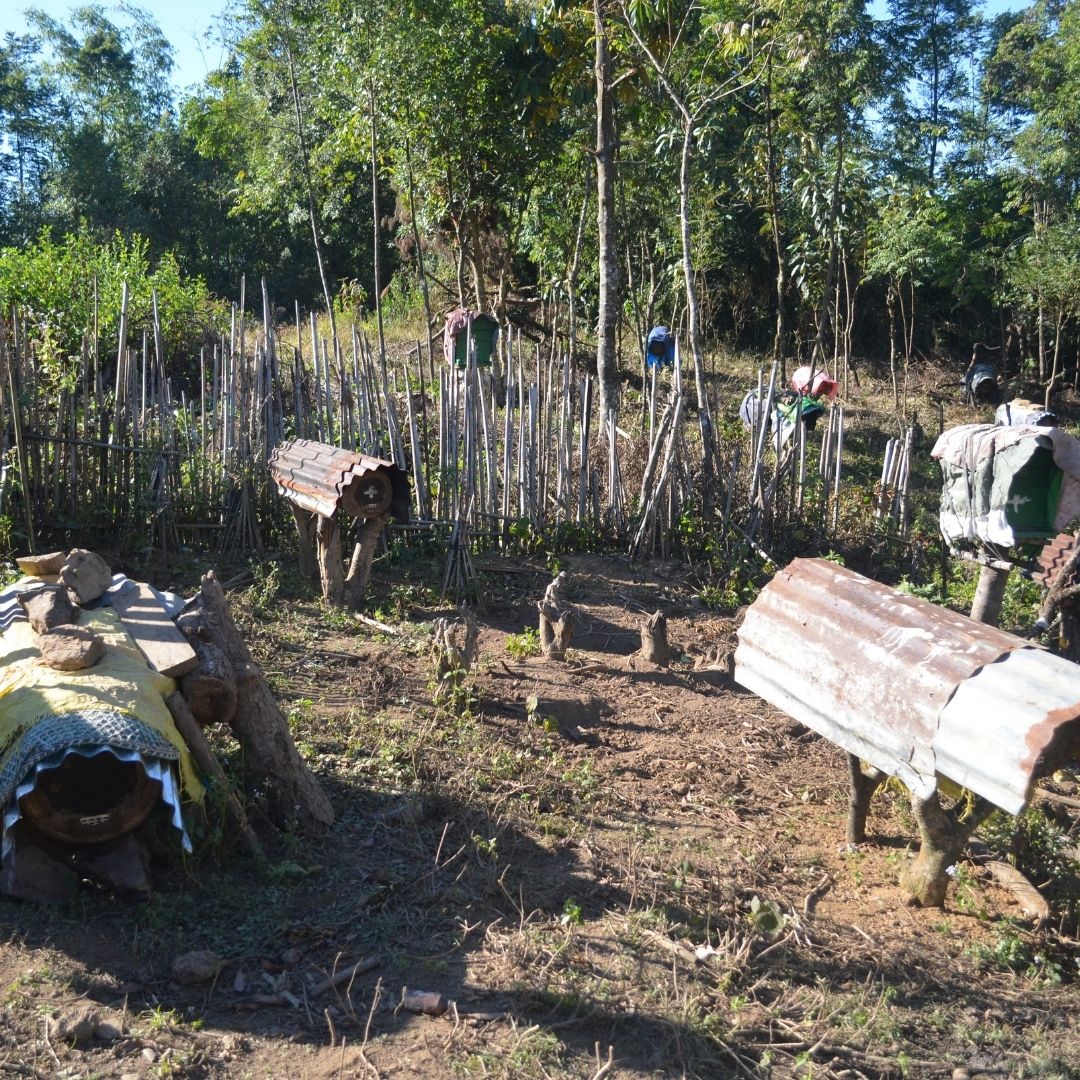
Bees, like most other plants and animals take cues from their natural surroundings to perfectly time their spring emergence for successful pollination; but now due to Climate Change, weather patterns and temperatures shift beyond the norm and confuse the bees, causing them to become out of sync, resulting in bees emerging long after the plants are ready to be pollinated. This inspired NESFAS to explore the modern methods of beekeeping with the local community members but to first let the bees thrive and take in the natural habitat before they are domesticated.
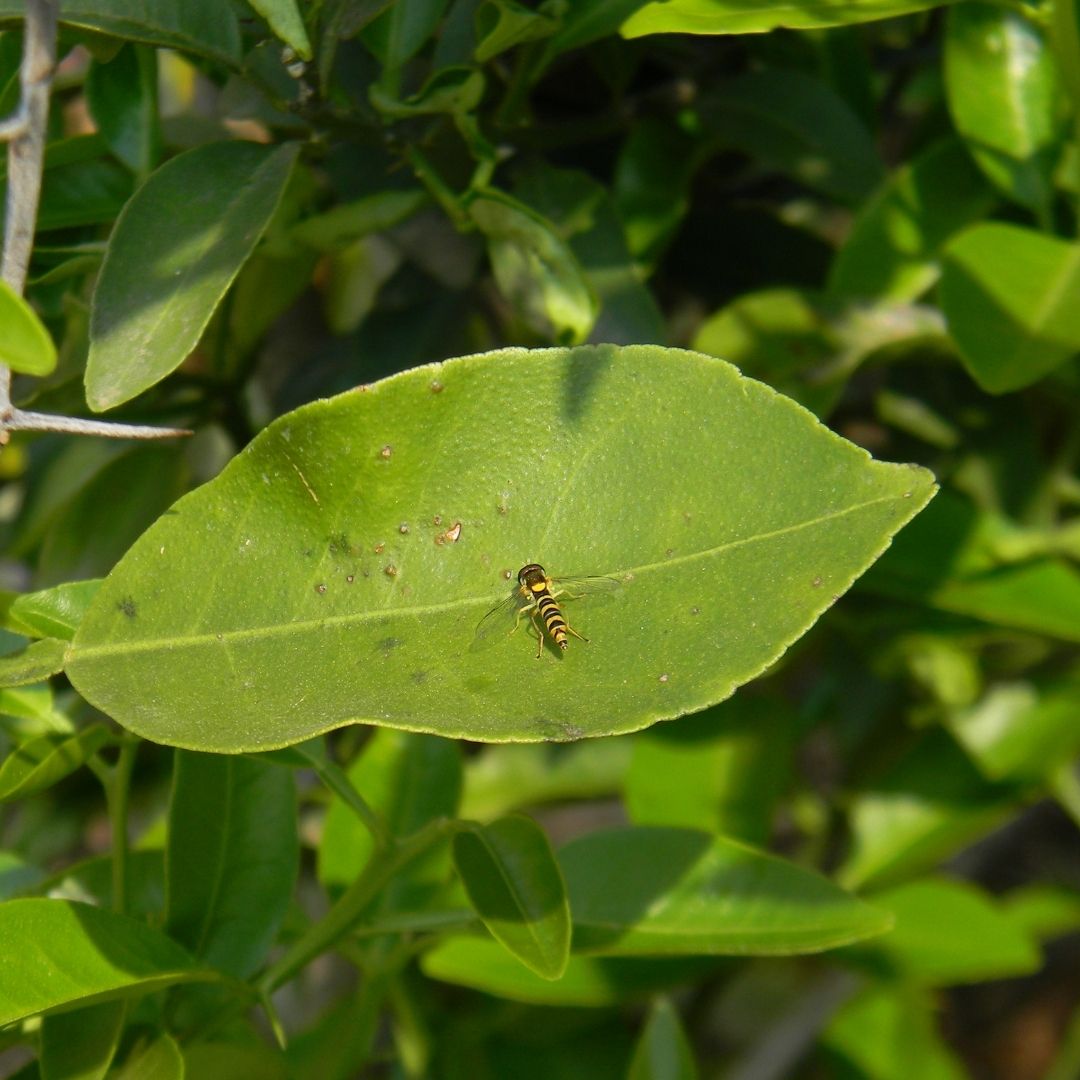
Bees are extremely susceptible to certain mites and gut parasites, and these parasites have been gradually increasing in number due to warming weather conditions. Bee deaths have lately been on the rise and India is not far behind too. Species such as the Rusty-Patched Bumblebee and the seven species of Hawaiian Yellow-faced Bees have neared mass extinction (Source Link). The local farmers believe in this decline too, which is mostly caused due to Shifting form of agriculture which leaves many lands infertile and unusable. We believe that an organic certification system must be put in place so as to identify and reduce the harmful effects of pesticides on bees and other pollinators
Producers of Superfood – Honey
Honey is sometimes seen as a mere organic substitute for commercial sugar but it is actually a Superfood. Besides having a distinctly memorable aroma, it also contains excellent nutrients and is known to be a calmative and owing to its antibacterial and oxidising properties, it is widely used in folk medicines as well. Moreover, honey doesn’t require drastic additional processing and generally retains most of its nutritional properties if properly stored for long periods of time.
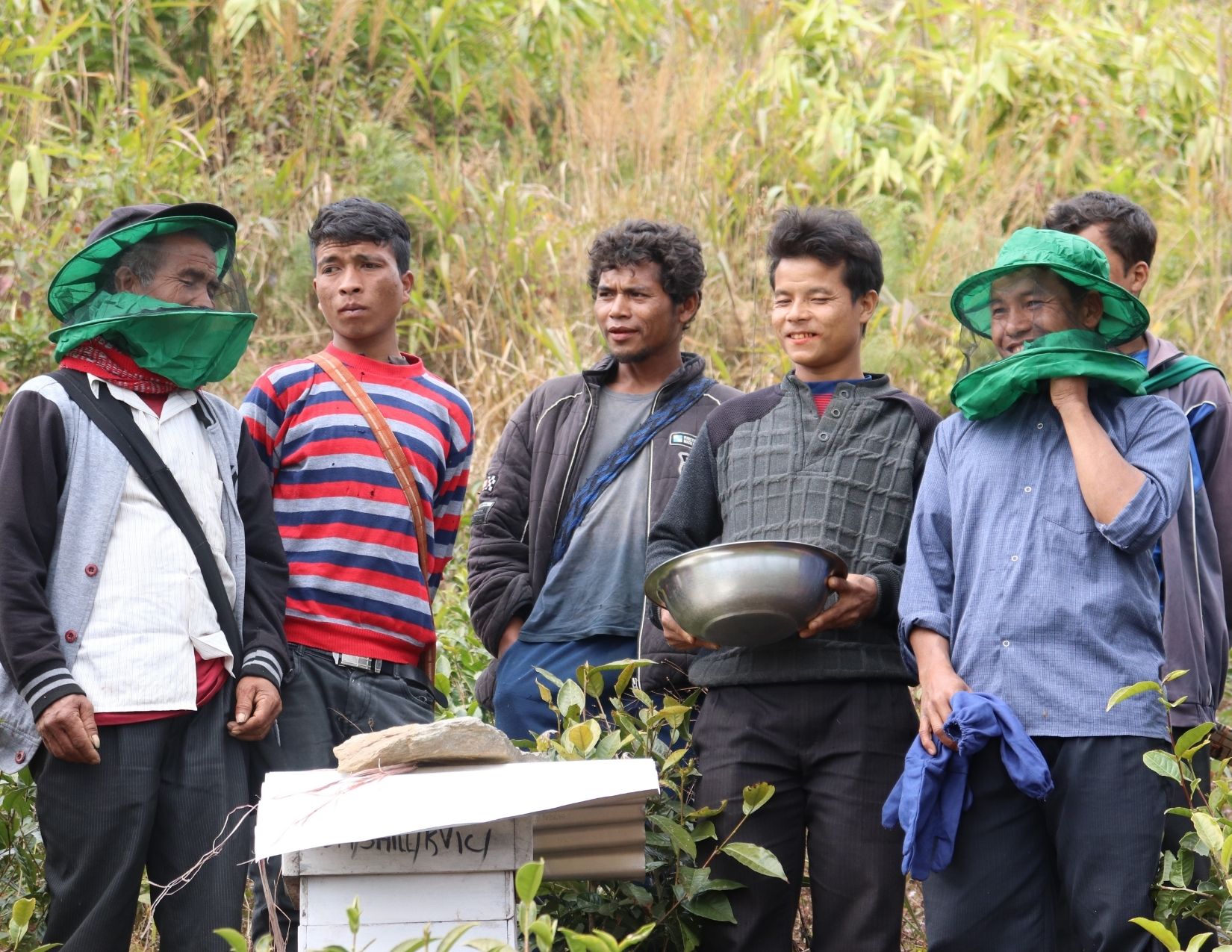
That being said, all is not in vain; besides these heart-wrenching discoveries, NESFAS has been able to bring about significant change in the way the local community folk look at the effect they are having on pollinators and are more sensitised to the same. Five schools have included Pollinators’ Study as a subject and the Synroplang Beekeepers group in Mawpynthymmai have begun introducing modern tools and methods of production for a higher commercial yield. We always take the plants, fruits and vegetables growing in our fields and gardens for granted and it is easy to overlook the minute natural processes that help them flourish; but the sooner we realise the true worth of these insects and the great impact that they have on the livelihood of the entire ecosystem, the easier it will be to undo out past errors.


